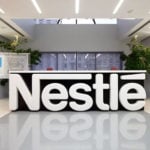Soji-Eze Fagbemi, who attended the meeting between the Federal Government and the Organised Labour in Abuja, reports the proceedings, government and Labour positions also looks at the effects of an industrial strike and a nationwide protest on the fragile economy, especially with the devastating effects of COVID-19 Pandemic.
THE Nigeria Labour Congress (NLC) rose from its emergency Central Working Committee (CWC) meeting on September 16, with a resolve to lead a mass protest and industrial action against the Federal Government over the recent increase in electricity tariff and the price of Premium Motor Spirit (PMS), popularly known as petrol. With this commitment as announced by the President of NLC, Comrade Ayuba Wabba, after the meeting, seems the long wait to confront the President Muhammadu Buhari administration over the situation, the stage is set for a showdown between the government and Organised Labour.
Many Nigerians have accused the Nigerian labour movement, especially the NLC of compromising its stand, believing that the congress, has, over the past few years, looked the other way whenever they expected it to move forcefully against some policies of this government. This, according to them was against the position and actions of the congress against policies of the previous governments when the NLC often rallied Nigerians to heavily resist bad policies, especially fuel price increase and sundry increases in the prices of essential commodities.
But the resolution of the NLC, following their CWC emergency meeting, last week is changing all that. To say the least, the emergency CWC meeting came a day after the Federal Government held a marathon meeting with the organised labour at the banquet hall of the Presidential Villa in Abuja. The villa meeting, which started by 10 am, ended at about 7.30 pm and as a media representative at the meeting, our correspondent can reveal that it was discussions, arguments and counter-arguments all through; but for less than 15 minutes of breaks taken twice throughout the duration of the meeting.
The meeting at the villa provided both sides the opportunity to talk frankly and discuss the issue at stake. As stated in his opening remarks, the Minister of Labour and Employment, Dr Chris Ngige, who led the parley, assured that “discussions will be frank, unfettered and conducted in a cordial atmosphere.”
Ngige was joined by five other ministers to explain the government’s position to labour; and these include the Minister of State for Petroleum, Timipre Sylva; the Minister of Works and Housing, Babatunde Fashola, the Minister of Power, Ahmed Zakari and two other ministers of state while the Minister of Finance was represented. The chief executives and leadership of all the affected agencies; the Nigerian National Petroleum Corporation (NNPC), Nigerian Electricity Regulatory Commission (NERC), the Central Bank of Nigeria (CBN) were also in attendance at the meeting to give position of their respective agencies. They all made presentations to further clarify the government policy, the impact and how to curtail the impact. The organised labour was led by the President of NLC, Comrade Ayuba Wabba, and the TUC President, Comrade Quadri Olaleye.
Dr Ngige, who led the meeting, said the tripartite gathering was between the Federal Government and the Organised Labour represented by the NLC and the TUC; adding that “the meeting is a bilateral dialogue between us Nigerians to consider the state of the economy and events that have necessitated recent increases in electricity tariff and the price of Premium Motor Spirit (PMS).”
Pump price of fuel should be N183/litre
In the lead presentation, the Minister of State for Petroleum, Timipre Sylva, took the meeting through the era of subsidy and the pains it had inflicted on the economy of the country. According to him, Nigeria lost a total of N10.413 trillion to subsidy between 2006 and 2019, while between the year 2016 and 2019 alone, the country lost a total sum of N2.193 trillion on subsidy.
In fact, the minister told the labour leaders that the sector was not fully deregulated yet. He said the pump price of fuel should actually be N183, rather than N161 if all other indices, especially the dollar exchange rate, were factored in. Sylva spoke on “Understanding the Impact of fuel Subsidy on the Nigerian Economy and the Gains of Deregulation, he insisted that with N161 per litre, price of fuel in Nigeria is still the cheapest in the sub-region, comparing with Senagal N549 equivalent, Cameroon N449, Benin N359, Ghana N332 and other neighbouring countries.
Cost of deregulation/imperative decision
Sylva explained that subsidy had caused Nigeria a lot of money.
He said, “You can see what subsidy cost us in 2011, subsidy cost us N2.105 trillion. We are talking of losing job, we are talking of people suffering, in 2010, it cost us N1.355 trillion, 2013 N1.316, and by 2015 the subsidy figure came down to N654 billion, by 2016 we didn’t even have any under-recovery. So, you can see that in 2018, prices came up again.
“So you can see that this is a policy direction that should have been taken long ago. No wonder every government comes to that point when they realised that subsidy was not sustainable but unfortunately some of those government did not have the political will; also the time probably was not ripe and they couldn’t take it because you can see that the cost of subsidy from 2016 to 2019 was N3.6 63 trillion, an average of N916 billion per annum.”
Deadlocked and labour insistence on price reversal
However, after over nine hours of deliberations, questions and answers, arguments and counter-arguments, the meeting could not arrive at a clear position and the meeting was shifted to a date yet to be known. Efforts by the Minister of State for Petroleum to get a specific date when the meeting would be reconvened were not successful. Even though the TUC had held its own organs meetings and had its final position, the NLC was expected to hold its CWC meeting the following day, and the labour minister begged for a soft landing. At the insistence of the Petroleum Minister of State to have a specific date for reconvening, Labour said their position after the NLC meeting would be made known to the Labour Minister who would call a meeting thereafter.
Meanwhile, Labour insisted first on price reversal, as earlier contained in the TUC letter to President Buhari, before further negotiation. The TUC President, Comrade Quadri Olaleye, said the first solution was to reverse the fuel price hike and electricity tariff. He pointed out that the TUC had already written the Federal Government and gave seven-day ultimatum for these demands to be met.
He said “Government should take immediate steps to reverse the hike in prices as it affects electricity, petrol and all other social services in the country to the prices they were prior to the increase; and provide adequate and quality healthcare and education for all to save the poor and the vulnerable at all levels.”
The NLC President, Comrade Wabba, in addition to price reversal demanded for tangible palliative for workers and Nigerians. According to him, “the fundamental principle underpinning PMS subsidy is the fact that wholly we import what we consume, and because of this, what also makes up the price includes issues like taxes, insurance, freights which if we are refining would have actually made the price to come down.
“This is one issue we have to deal with and government must summon the courage once and for all to address this issue and we have provided a lot of information for that to be addressed because the figure you gave us, N161, we don’t even know what constitutes the N161. Those issues that constitute the price are part of the inefficiency in the system which government hitherto has been paying and christened subsidy. Government cannot transfer the inefficiency to the people. Nigeria should refine its products.”
Possible effect on the fragile economy
Without doubt, the devastating effect of another total shut down of the nation’s economy at this period in time will be severe on the fragile economy, observers said. With its attendant mass protests and industrial strike by workers and Nigerians, the effect will be grave and unimaginable. The threat is already there and the action is imminent.
Economists are agreed that the effect of strikes on the economy, while difficult to calculate is both deleterious and detrimental to the economy and the people. Productivity is impaired, GDP will decline and poverty will be escalated.
The NLC president had earlier told Nigerian Tribune at the wake of the fuel price hike, that Nigerians should expect “father of all protests,” in response to the price hike. Accordingly and in this regard, the Executive Director, Peering Advocacy and Advancement Centre in Africa (PAACA), Ezenwa Nwagwu; and the Director-General, Nigeria Employers’ Consultative Association (NECA), Dr Timothy Olawale, warned of the unfavourable impending crisis that could destroy what is left of the collapsing economy.
Painting the effect in bold relief, Dr Olawale said, “The negative effect of the threat to strike and the actual strike on businesses and the economy at large would be colossal and damages done might be irreparable. At a time when businesses are faced with numerous challenges forcing them to operating at below 60 per cent production capacity, the impending but avoidable strike would further negate the little gains made so far in the efforts to get the economy working and stay out of recession.”
Driving home his point, Olawale said “Nigerians and the business community have already suffered losses as a result of COVID-19, government and labour should not impose additional/more burden on the country.
“NECA calls on the Federal Government and Labour to observe the principle of social dialogue in resolving these issues. We hope Nigeria would not be made to pass through another national strike, which is avoidable and needless.”
Speaking in a similar vein, the PAACA executive director said: “Within the context of COVID-19 situation, it is clear that governments are walking on a tight rope. But in walking on that tight rope, they do not need to make the situation worse for workers and citizens. They must be able to find a balance in the way in which the belt tightening situation does not rub off only on the poor and the working people. The contestation by workers and their unions is to make sure that the government does not, in the guise of trying to walk out of the tight rope the COVID-19 situation has imposed, make life miserable for the majority of the citizens.”
Ezenwa described the situation as a delicate balance, saying, “So, it is that delicate balance that is the responsibility of the government to find how to ensure that whereas you are planning to get out of the economic woes that the country has been put into, that you are also mindful of the fact that the majority of your citizens and workers are not finding things easy.”
Way out of impending crisis
Speaking on how to avert the impending industrial action, Olawale counseled the two parties in the imbroglio to go into negotiation.
He said, “While the concern of labour is understandable in view of the reduced purchasing power of Nigerian workers and the increasing consequential costs of business operations that will arise, we urge government to continue engagement with the unions to forestall the impending industrial action.
“The tottering economy cannot afford another ‘downing of tools’ by workers as the little gains made as a result of the gradual ease of lockdown might be lost, leading to acceleration of job losses and others issues. The country is grappling with several issues, especially the aftermath of COVID-19 on businesses, which led to closure of businesses, job losses – estimated at over 20 million unemployed Nigerians.”
According to Ezenwa, a trade union is not a protest machine, it is a movement of consensus and negotiation; otherwise, it would have simply gone on strike. “What they have said is that we have given you 14 days for us to have a conversation. But you know that the government is always arrogant in terms of how it treats ultimatums. Within 14 days you can put together an agreement that is mutually beneficial and save us that protest.” He said.
However, he regretted that, that is not what we see in the country, adding, “Rather, they will allow the 14 days to elapse and then blame the workers for shutting down the country.” He believes that the government can take advantage of the 14 days within which it could have been able to bring in all parties.
‘It is possible for them to have a conversation that would save us this protest. The workers have done what trade union should do. They did not go on a strike without a notice but once you see a notice, the notice is let us talk. As a government, you can’t maintain an arrogant position when workers made a demand, it is stupidity to maintain that position;” he advised.
Ezenwa said: “Even if your first conversation collapses, you must open a window of engagement. Fourteen days give you opportunity to bring in reconciliators, people who can negotiate. If it is an opposition political party that is calling a strike, that says we are shutting down; you can understand that. But a trade union gives you 14 days so that you can do all that is possible to make sure that they don’t eventually use the last resort and you know that strike is a last resort.
So, the strike option is a last resort, it means that you take the advantage of the window of negotiation that has opened through the 14 days.”
On the need to fully meet the demand of labour, he said, “you can’t get everything in a negotiation. Late Pa Imoudu was very clear, and nobody can accuse Imoudu of being a renegade gtrade union leader. He said you can’t get everything you go into a negotiation with; you get some, you lose some.”
YOU SHOULD NOT MISS THESE HEADLINES FROM NIGERIAN TRIBUNE
BREAKING: EdoDecides2020: Obaseki Declared Winner
The Independent National Electoral Commission (INEC), on Sunday, declared the candidate of the Peoples Democratic Party (PDP), Godwin Obaseki, as the winner of the governorship election in Edo State…
JUST IN: Emir Of Zazzau, Shehu Idris, Dies At 84
The Emir of Zazzau, in Kaduna State, Alhaji Shehu Idris has died in his palace at the age of 84. His son, Aminu Shehu Idris, confirmed in an interview with the Tribune Online that his late father who was appointed on 15th February, 1975 and spent 45 years in the throne died on Sunday after a protracted illness…
Dino Melaye’s Revelation: How I Was Scammed To Support Buhari, Join APC In 2015
Senator Dino Melaye, a chieftain of the People’s Democratic Party (PDP), represented Kogi West senatorial district in the Eighth Assembly and until last November, in the 9th National Assembly speaks in this exclusive interview on the leadership of the National Assembly under Senator Ahmad Lawan and Femi Gbajabiamila, review of the Nigerian Constitution, how he was scammed to support Buhari in 2015 and why President Muhammadu Buhari will never agree to a workable constitution for the country…
22 Deregistered Political Parties In Bauchi Demand Reregistration By INEC
Bauchi State chapters of the 22 political parties deregistered by INEC for what was described as lack of national spread and non-performance but ordered to be reregistered by the Court of Appeal, Abuja Division have called on the INEC and Bauchi State Independent Electoral Commission (BASIEC) to as a matter of fairness include their names and logos on the ballot papers for future elections…
Eight Burnt To Death In Lagos-Ibadan Expressway Accident
Eight persons were on Saturday night burnt to death in a lone accident involving a Mazda bus on the Lagos-Ibadan expressway…
WATCH TOP VIDEOS FROM NIGERIAN TRIBUNE TV
- Let’s Talk About SELF-AWARENESS
- Is Your Confidence Mistaken for Pride? Let’s talk about it
- Is Etiquette About Perfection…Or Just Not Being Rude?
- Top Psychologist Reveal 3 Signs You’re Struggling With Imposter Syndrome
- Do You Pick Up Work-Related Calls at Midnight or Never? Let’s Talk About Boundaries







